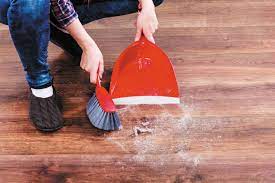Roof Repair for Commercial Properties: Protecting Your Investment
Commercial properties are significant investments, and upkeep is critical to ensuring their long-term value and functionality. The roof is a critical component of commercial property maintenance that requires attention and care. A well-maintained roof not only protects the interior of the property but also contributes to energy efficiency and aesthetics. In this blog, we’ll discuss the importance of commercial roof repair, common roofing issues, and steps you can take to protect your investment.
Commercial Roof Maintenance Is Critical
Commercial roofs are subjected to a variety of environmental factors, such as harsh weather, UV radiation, and temperature fluctuations. These elements can erode the roof’s integrity over time, resulting in a variety of problems. Here are some of the reasons why commercial properties require regular roof repair and maintenance:
1. Asset Protection: Your commercial property houses valuable assets such as equipment and inventory. A well-maintained roof keeps these assets safe from water damage and other external threats.
2. Energy Efficiency: A well-maintained roof with adequate insulation can help with energy efficiency. An efficient roof helps to regulate indoor temperatures, lowering your commercial space’s heating and cooling costs.
3. Legal Compliance: Some jurisdictions have building codes and regulations that require commercial properties to have regular roof inspections and maintenance. Compliance with these regulations is critical in order to avoid penalties and potential liability.
4. Aesthetic Appeal: The overall appearance of your commercial property can be greatly influenced by the condition of your roof. A well-kept roof improves curb appeal, which attracts customers and clients.
5. Long-Term Cost Savings: Regular roof maintenance and timely repairs can keep minor problems from becoming costly ones. Addressing roofing issues as soon as possible can save you money in the long run.
Roofing Problems in Commercial Properties
Understanding the most common roofing problems that commercial properties may encounter is critical for effective maintenance. Here are some examples of common issues:
1. Roof Leaks: One of the most common roofing issues is leaks. They can occur as a result of deteriorated or damaged roofing materials, punctures, or poorly sealed roof penetrations.
2. Ponding Water: Water accumulates in low spots on flat or low-slope roofs, causing ponding water. This can cause roof deterioration, especially if the water is not properly drained.
3. Roof Membrane Damage: UV radiation, temperature fluctuations, and foot traffic can all cause damage to roofing membranes. Leaks and reduced roof lifespan can result from damaged membranes.
4. Roof Flashing Issues: Over time, the flashing that seals roof penetrations such as vents and chimneys can deteriorate or become loose. Water infiltration can occur if the flashing is damaged.
5. Roof Blistering and Bubbling: Roof blisters and bubbles can form as a result of trapped moisture or improper installation. These problems can jeopardize the roof’s integrity.
6. Blocked Drains and Gutters: Debris, leaves, and other materials can clog roof drains and gutters, making proper water drainage impossible. This can result in ponding water and possible damage.
7. Shingle or Tile Damage: Shingles or tiles on commercial properties with pitched roofs can crack, break, or become dislodged over time. Leaks can occur as a result of damaged shingles or tiles.
8. Hail and Storm Damage: Hailstorms and other severe weather events can cause extensive roof damage. Hail can pierce roofing materials, jeopardizing their integrity.
Protecting Your Commercial Roof Investment
Now that we’ve covered the significance of roof maintenance and common roofing issues, let’s look at how you can protect your commercial roof investment:
1. Regular Inspections: Have a qualified roofing professional inspect your roof on a regular basis. Inspections can aid in the early detection and resolution of problems, preventing them from escalating.
2. Routine Maintenance: Create a maintenance plan that includes cleaning gutters, removing debris, and addressing minor repairs as soon as possible.
3. Professional Repairs: If your roof sustains damage or leaks, contact a professional roof repair South Bend with commercial roofing experience. DIY repairs should be avoided because they may exacerbate the problem.
4. Roof Coatings: Consider applying roof coatings or sealants to your roof to extend its life and improve its resistance to the elements.
5. Drainage Management: Make sure your roof drains and gutters are clean and working properly to avoid ponding water.
6. Document Maintenance: Maintain detailed records of all roof inspections, maintenance, and repairs. This documentation is useful for warranty claims and for future reference.
7. Ponding Water: If your roof is prone to ponding water, speak with a roofing professional about improving drainage and preventing damage.
8. Hail and Storm Preparedness: Plan for post-storm inspections and repairs in advance of severe weather events. Check your roof for hail damage on a regular basis.
9. Roof Replacement When Necessary: Consider roof replacement when your commercial roof has reached the end of its lifespan or has significant damage that cannot be repaired. A new roof can provide long-term benefits while also protecting your property.
10. Warranty Knowledge: Become acquainted with the warranties associated with your roofing materials and contractor’s workmanship. To get the most out of your warranties, make sure you understand the coverage, terms, and any maintenance requirements.
Conclusion
Maintaining your commercial property’s roof is critical to protecting your investment and ensuring the building’s long-term functionality. Regular inspections, routine maintenance, and timely repairs are critical to addressing common roofing issues and extending your roof’s lifespan. You can enjoy the peace of mind that comes with a well-protected and well-maintained property by taking proactive steps to care for your commercial roof, learn more here.







